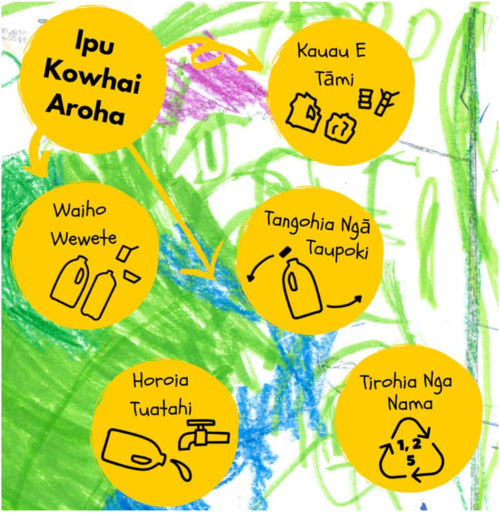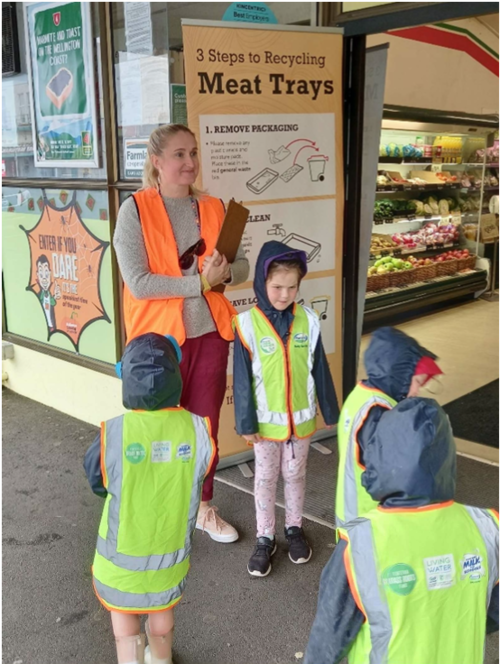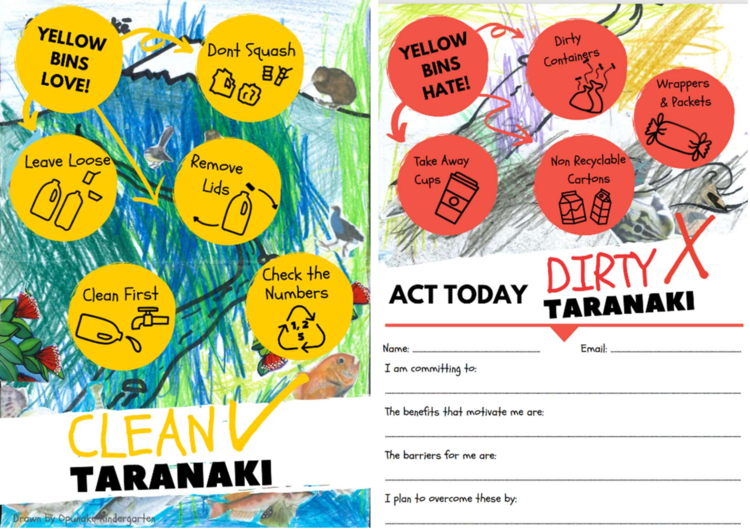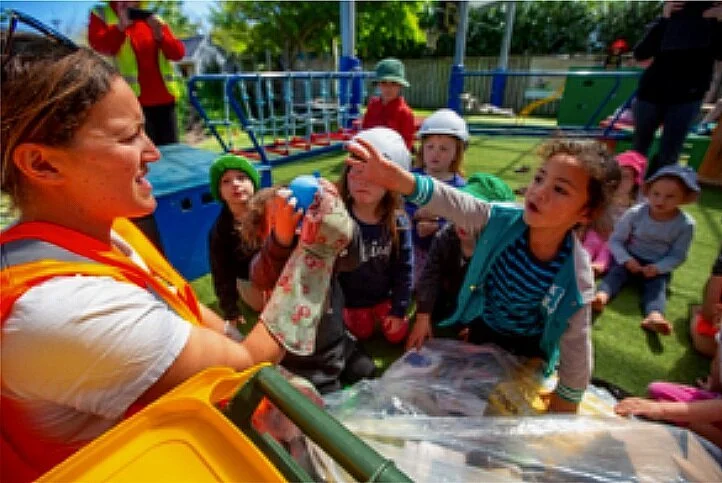Our Green Ōpunake Journey - Kids leading the way in their community
We found that through educating our children and getting them involved, positive change can happen in our community.
A boy standing outside of the dairy says, “1,2…5” and an elderly woman approaches him and says, “no it’s 1,2,3.” And he kindly persists, “1,2,5…I’m not counting, I’m recycling.”
This interaction took place in Ōpunake while hanging posters to create awareness around acceptable recycling.
Our Green Ōpunake Journey proved to be not only productive and fun but also illustrated the importance of reinforced goal-setting and recognizing the positive impact our young people can have within our community. The results were amazing with 50% of people who expressed interest in better recycling acting and a 37% improvement in recycling for those engaged with our goal setting and support program three months after the campaign.
With an aim to build scientific capacity in the classroom, MBIE Curious Minds funded a joint venture project with the children from Ōpunake Community Kindergarten and some of our Sustainable Taranaki team. Together they came up with research questions, then tried a few experiments and gathered the data to test their hypothesis and measure the result.
Our research questions
Does timely, relevant information at the point of purchase drive better recycling?
Do personal or social commitments drive more or longer-lasting change?
How did we answer these questions?
We worked together with preexisting community groups, linked to Ōpunake Kindergarten who had expressed a desire to change their current habits.
We presented a trigger to break existing habits: posters and information panels on how to recycle better at FourSquare.
We did a number of bin audits to measure a baseline for how well the community was already recycling.
We developed surveys to understand people’s personal preferences and then grouped them into “personas,” or types of characters.
We addressed the community’s barriers and motivations through what the survey showed was relevant for each of these “personas”.
We supported them in setting goals to improve their current recycling habits by using a physical postcard (action card) with their commitment. This was also followed by an email and reminders to continue their efforts in improving recycling habits.
We then redid the bin audits to measure if the information and the commitments had improved recycling habits.
Action Cards presented to the Ōpunake community
What did we find?
The main barriers to better recycling habits proved to be other people living in the household who did not want to change or follow the commitment to better recycling. The experiment also showed that reward systems need to be current, regular, and timely to ensure that positive conditioning is effective.
However, most of our results were very encouraging: 50% of those who expressed interest to act and improve their recycling habits actually made the next step with us (finding less contaminated bins). When we included a full personalised engagement, commitment, and follow-up, we found a 37% improvement in recycling habits.
This is great news, as it shows that timely and relevant information, together with commitments and with support from community members, can bring positive behavioural change around recycling habits. This can happen through collaboration from the ground up, and educating youth can have the biggest impact.
Erin Strampel educating the Ōpunake Kindergarten children on what can and cant’ be recycled.
If you would like to learn more about recycling and what we can do, please visit our Rethinking Rubbish resource.
Book a free Junction tour for your family and friends, school, business, or community group.
Learn about our IMPACT Program, a youth action incubator, which facilitates environmental projects that engage with, and give back to, the local community. Our facilitators focus on a strengths-based approach, supporting youth to develop their individual and team strengths, their interests, and passions.




